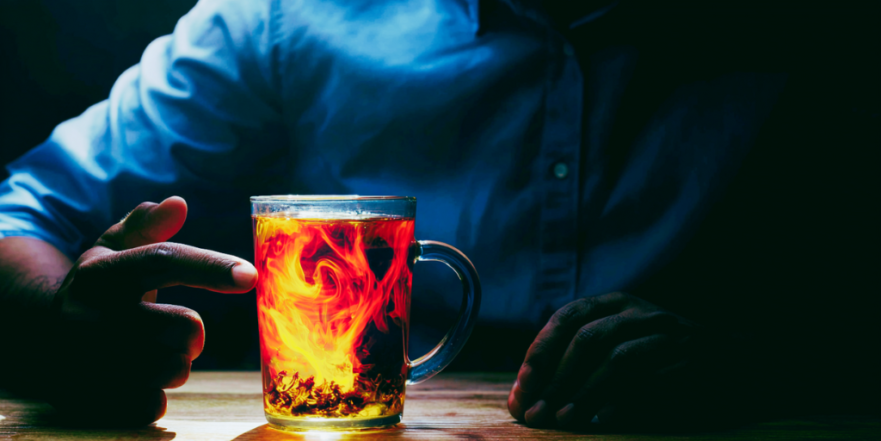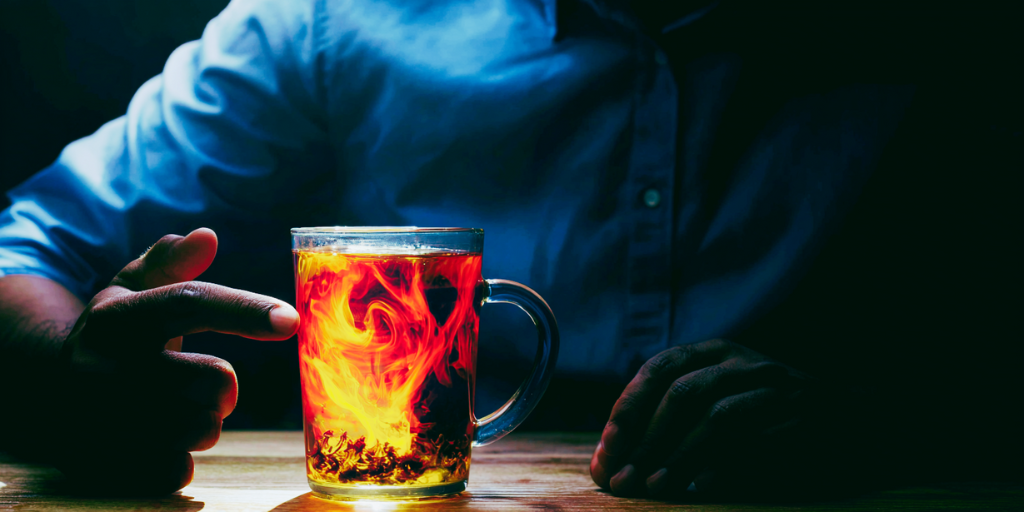
Have you ever thought that your favorite cup of tea, something so natural and comforting, could actually be doing more harm than good? It’s a bit of a shocker, right? We often think of teas as harmless, maybe even a cure-all, but the truth is, some of them can mess with your body in ways you might not expect. This article will dive into which teas you should be careful with, especially if you have issues with your liver, kidneys, or blood pressure, and offer some safer alternatives. (Based on the knowledge of Dr. Andre Wambier)
⚠️Teas That Can Raise Your Blood Pressure
It’s wild to think that something as simple as a cup of tea could make your blood pressure go up, but it’s true. If you’re already dealing with high blood pressure or heart problems, paying attention to your tea choices is super important.
➡️Licorice Tea

First up is licorice tea. Now, licorice is known for its sweet taste and can help with digestion. But here’s the catch: it has something called glycyrrhizic acid. This stuff can make your body hold onto sodium and lose potassium, which in turn can push your blood pressure higher. So, if you have high blood pressure, it’s best to skip this one or at least be very careful with how much you drink.
➡️Black Tea
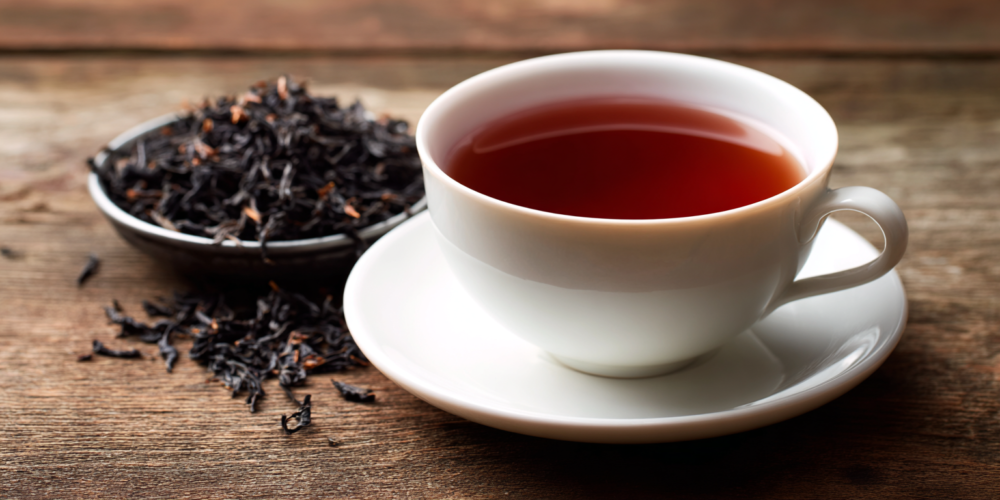
Next, we have black tea. This might surprise a lot of people because it’s one of the most popular teas out there. The thing about black tea is its caffeine content. A single cup can have up to 70 mg of caffeine, which is almost as much as a cup of coffee. For some folks, especially those sensitive to caffeine, this can cause a sudden jump in blood pressure, particularly if you’re drinking a lot of it.
🎯Key Takeaways:
- Licorice tea can increase blood pressure due to glycyrrhizic acid.
- Black tea has a lot of caffeine, which can cause blood pressure spikes in sensitive people.
- Hibiscus tea is a good option for lowering blood pressure.
⚠️Teas Pregnant Women Should Avoid
Pregnancy is a time when you need to be extra careful about everything you put into your body, and teas are no exception. Even natural teas can pose risks that you might not be aware of. Let’s quickly go over which ones to steer clear of.
- Chamomile Tea: While it’s known for being calming, drinking too much chamomile tea during pregnancy can be risky. It might cause a premature closing of a fetal blood vessel called the ductus arteriosus, which is not good for the baby. So, it’s better to avoid it.
- Peppermint Tea: Unfortunately, peppermint tea is also on the no-go list. It could potentially lead to birth defects and might even affect breast milk production later on. Best to stay away.
- Senna Tea: This one is a natural laxative, but it’s a big no for pregnant women. Senna can trigger uterine contractions and increase the risk of miscarriage.
- Cinnamon Tea: Another one to avoid. Cinnamon tea can cause blood vessels to constrict and increase contractions, especially in the early months of pregnancy.
- Hibiscus Tea: Surprisingly, hibiscus tea is not safe for pregnant women. It can mess with hormone levels and raise the risk of miscarriage. Avoid it as much as you can.
- Boldo Tea: Known for helping with digestion, boldo tea is not safe either. It’s been linked to risks of miscarriage and birth defects.
- Lemongrass Tea: This might seem like a light and harmless choice, but it’s not. Lemongrass tea can increase the risk of miscarriage.
- Rosemary Tea: It’s best to avoid rosemary tea. Rosemary can stimulate menstruation, which is dangerous in the early stages of pregnancy.
- Guaco Tea: Definitely not. Guaco tea increases the risk of bleeding, which is a serious concern during pregnancy.
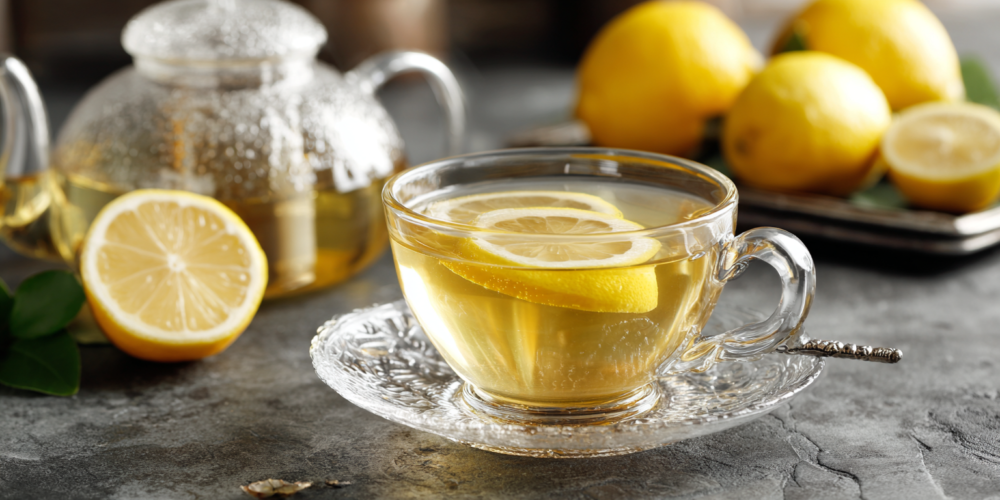
So, what can pregnant women drink besides water? Good news! There are safe options. Fruit teas like strawberry, lemon, and pineapple are great for staying hydrated and give you some vitamins and minerals. And ginger tea? Yes, in small amounts, it’s excellent for easing nausea and morning sickness, especially early in pregnancy. But always, always talk to your doctor before adding any tea to your routine. The safety of mom and baby comes first!
⚠️Teas That Can Harm Your Kidneys
Remember that famous singer who passed away due to severe kidney problems? There was even talk about how some weight-loss herbs might have played a part. It’s a real eye-opener! Some teas can make existing kidney problems worse or even cause new ones.
👉Which Teas Can Be Harmful?
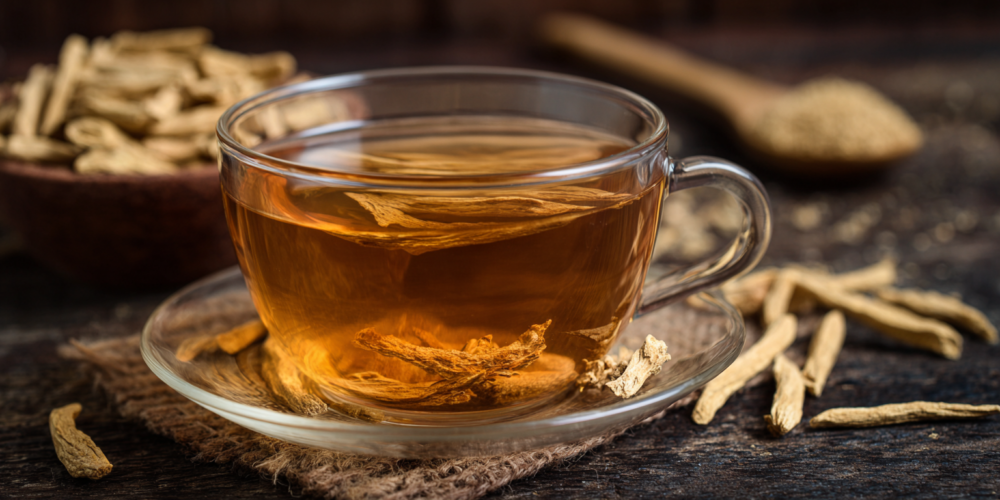
- Weight-Loss and Diuretic Teas: These teas might help you lose weight, but they can also dehydrate you and cause you to lose too much potassium. This can lead to a higher risk of acute kidney damage.
- Certain Herbal Teas: Some herbal teas can interact with medications and affect your blood pressure, blood sugar, or potassium levels. Here are a few examples:
- Astragalus, Dandelion, and Elderberry: These can have unwanted interactions.
- Licorice Tea: As mentioned before, it can raise blood pressure and affect your kidneys.
- Senna Tea: Using this for a long time can put a strain on your kidneys and cause damage because it’s a strong laxative.
- Horsetail Tea: This tea has compounds that, if consumed too much, can harm kidney function and lead to complications.
- Black Tea: Besides caffeine, black tea is rich in oxalates. These can contribute to kidney stone formation, especially if you drink too much or steep it for a long time. If you love black tea, adding milk can help reduce how much oxalate your body absorbs.
✅Which Teas Are Good for Your Kidneys?

The good news is that tea in general can be good for your kidneys because it helps you stay hydrated, which is key for healthy kidney function. Teas like green tea have polyphenols that can lower the risk of kidney problems. Other good choices include:
- White tea and Oolong tea: These are also packed with antioxidants.
- Ginger, Peppermint, Chamomile, Orange Blossom, and Fruit Teas: These not only help with hydration but also have calming and anti-inflammatory properties.
Always remember to drink in moderation and talk to your doctor before trying new teas, especially if you have a history of kidney issues.
⚠️Teas That Can Harm Your Liver
Some teas have compounds that, if you drink too much or for too long, can be toxic to your liver. As a 16th-century doctor named Paracelsus once said, “The difference between a remedy and a poison is in the dose.” This definitely applies to teas.
👉Which Teas Should You Be Careful With?

- Carqueja: Even though it’s often seen as beneficial, drinking too much carqueja can lead to liver toxicity.
- Horsetail Tea: Long-term use of horsetail tea can cause liver changes and, in serious cases, even lead to conditions like cirrhosis.
- Kava Kava: This might seem harmless, but there have been cases of acute hepatitis that resulted in liver transplants or, sadly, even death.
- Cascara Sagrada: Known for its laxative effect, cascara sagrada can cause cholestatic hepatitis and chronic liver disease if used carelessly.
- Other Herbs: Herbs like St. John’s Wort, Pennyroyal, Swallow-wort, Crotalaria, Comfrey, and Ephedra should also be consumed with extreme caution.
👉More Teas to Drink in Moderation:
- Comfrey Tea: This can be very dangerous for your liver and, in extreme cases, lead to liver failure.
- Chapeu-de-Couro and Boldo Tea (in excess): While these are known for “cleansing the liver,” using them too much can be harmful.
- Green Tea (in excess): Yes, green tea can be healthy, but in moderate amounts. The problem comes when you consume it in concentrated supplement forms, which can overload your liver and cause serious damage.
✅Which Teas Are Good for Your Liver?
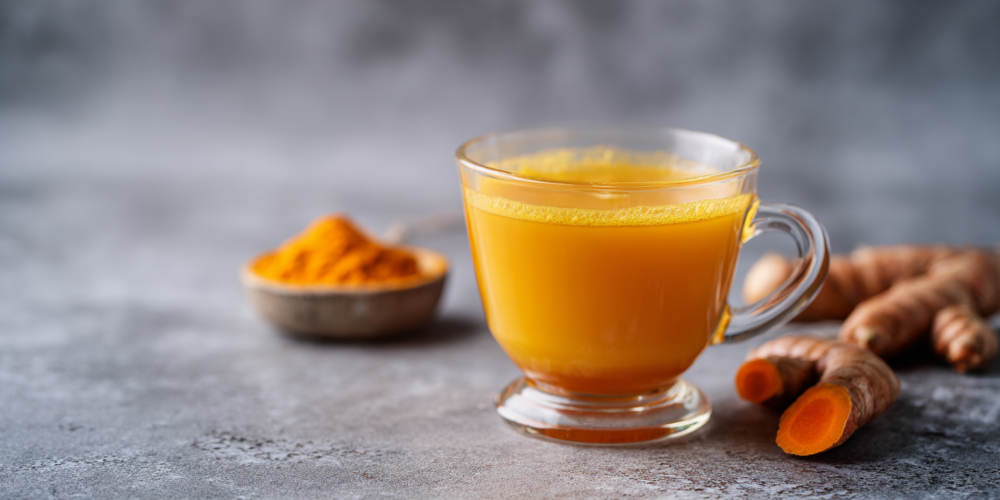
- Milk Thistle Tea (Silymarin): This tea helps protect and regenerate liver cells.
- Turmeric Tea: Its anti-inflammatory and antioxidant properties are great for liver health.
- Hibiscus Tea: This can also be beneficial, but as always, in moderation.
Even beneficial teas should be consumed with care. Moderation is the key to enjoying their benefits without risks.
⚠️Teas That Can Harm Your Brain
Some teas can have surprising and even dangerous effects on your mental health.
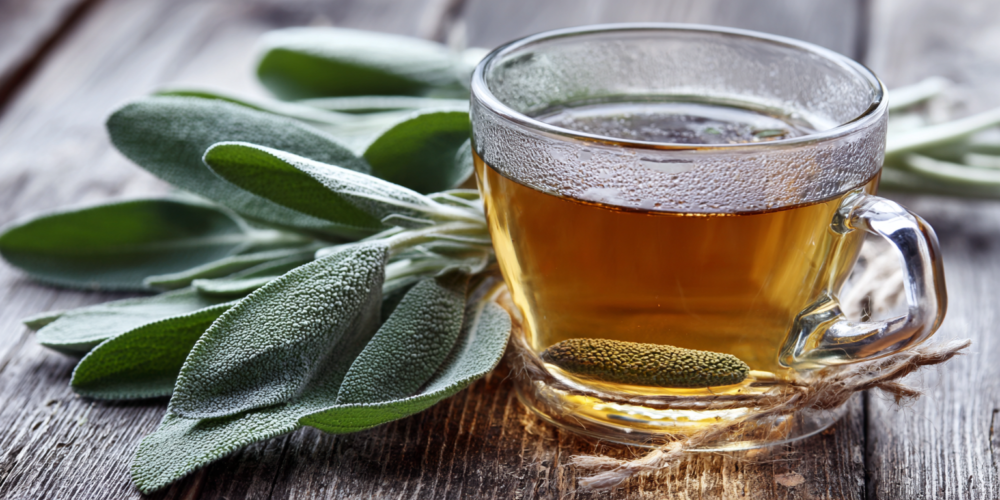
- Sage Tea: If you drink too much sage tea, it can cause mental confusion and, in high doses, even hallucinations. This is because of its active compounds that change how your brain works. So, caution is a must.
- Ayahuasca: This is a more complex case. Ayahuasca is used in spiritual and ritual settings and has strong psychoactive effects. While some people report transformative experiences, drinking ayahuasca comes with significant risks, especially for those who might be prone to psychotic disorders like schizophrenia and bipolar disorder. Ayahuasca can speed up the appearance of hidden mental illnesses and, in some cases, cause more severe symptoms. This is a big concern because there aren’t many extensive studies on its long-term effects outside of supervised settings. If you have a family history of psychotic disorders, drinking ayahuasca could increase your risk of developing them more quickly and intensely. It’s better not to take that chance.
✅Which Teas Protect Your Brain?
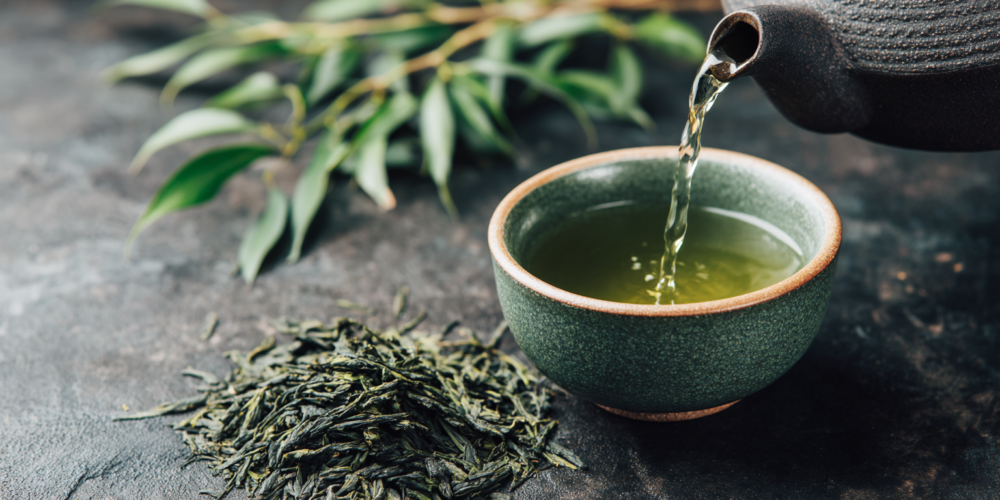
- Ginger Tea: Rich in antioxidants, it fights oxidative stress, which is linked to brain diseases.
- Green Tea: With its catechins, it’s known to improve brain function and lower the risk of cognitive decline.
- Chamomile: In moderate amounts, it helps reduce stress and promotes good sleep, which is vital for mental health.
- Rosemary Tea: With its antioxidant and anti-inflammatory compounds, it improves memory and concentration, protecting brain cells.
- Cinnamon Tea: It has anti-inflammatory and antioxidant properties that help protect the brain from cell damage. Research suggests it might improve cognitive function and slow down brain aging, but it should be consumed in moderation.
Now you know that even though teas are natural, they can have big effects—both good and bad—on different parts of your body. It’s clear that you need to be careful with how you consume them. Remember: your health is your most valuable asset, and taking care of it with knowledge and responsibility is essential.
Source: Dr. Andre Wambier

